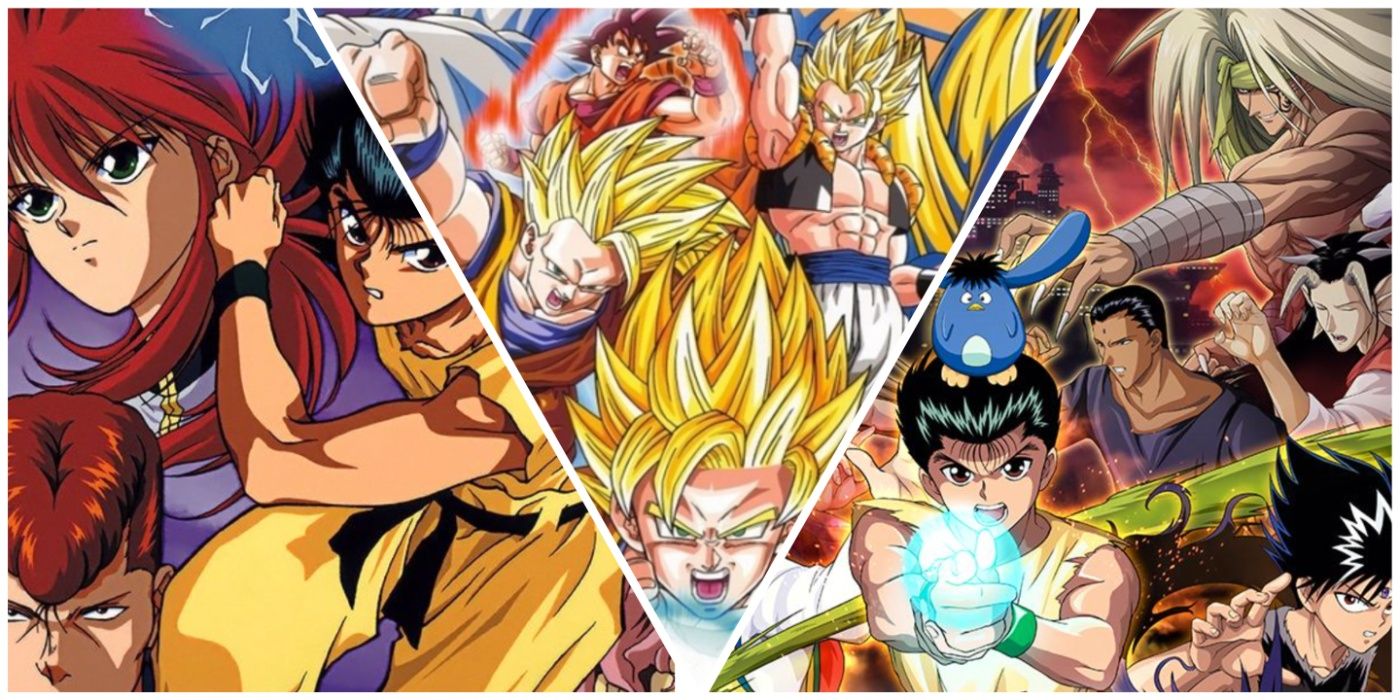There are hundreds of anime that have permanently changed the state of the industry, but Akira Toriyama’s Dragon Ball and Yoshihiro Togashi’s Yu Yu Hakusho are two of the biggest shonen success stories to come out of the 1990s. Dragon Ball and Yu Yu Hakusho share a lot in common and often feature comparable storytelling structures, even if they’re ultimately about different things. These two shonen series have also gained evergreen status and are arguably even more popular today than when they were first released. Dragon Ball, even now, turns out new content like feature films, video games, and manga, while Netflix recently released the first season of a live-action Yu Yu Hakusho series.Yu Yu Hakusho and Dragon Ball are both highly emblematic of their decade, and there’s so much overlap between them that it’s sometimes easy to forget which show came first. Their release dates are even more nebulous in a vacuum when streaming services like Crunchyroll have both series without blatant original air dates. It’s easy for any newcomer to watch both series and infer that they’re products of the ’90s, but not which of the two came first. There’s an unequivocal answer to this question, but there’s still a bit of each show in the other. Dragon Ball has certainly influenced Yu Yu Hakusho, and vice versa.Yu Yu Hakusho would produce 112 episodes, the last of which aired on December 17, 1994, which was well into Dragon Ball Z’s Buu Saga during Gohan’s training on the Sacred World of the Kai. The original Dragon Ball ran for 153 episodes until its finale on April 19, 1989. That being said, the series would immediately re-brand itself the following week as Dragon Ball Z and turn out another 291 episodes until its final installment on January 31, 1996. Some fans are still confused about which of these two series came out first, but Dragon Ball is the trendsetter in this department, as well as the anime that sticks around longer and gets to say the final goodbye.
There are hundreds of anime that have permanently changed the state of the industry, but Akira Toriyama’s Dragon Ball and Yoshihiro Togashi’s Yu Yu Hakusho are two of the biggest shonen success stories to come out of the 1990s. Dragon Ball and Yu Yu Hakusho share a lot in common and often feature comparable storytelling structures, even if they’re ultimately about different things. These two shonen series have also gained evergreen status and are arguably even more popular today than when they were first released. Dragon Ball, even now, turns out new content like feature films, video games, and manga, while Netflix recently released the first season of a live-action Yu Yu Hakusho series.
Yu Yu Hakusho and Dragon Ball are both highly emblematic of their decade, and there’s so much overlap between them that it’s sometimes easy to forget which show came first. Their release dates are even more nebulous in a vacuum when streaming services like Crunchyroll have both series without blatant original air dates. It’s easy for any newcomer to watch both series and infer that they’re products of the ’90s, but not which of the two came first. There’s an unequivocal answer to this question, but there’s still a bit of each show in the other. Dragon Ball has certainly influenced Yu Yu Hakusho, and vice versa.
Yu Yu Hakusho would produce 112 episodes, the last of which aired on December 17, 1994, which was well into Dragon Ball Z’s Buu Saga during Gohan’s training on the Sacred World of the Kai. The original Dragon Ball ran for 153 episodes until its finale on April 19, 1989. That being said, the series would immediately re-brand itself the following week as Dragon Ball Z and turn out another 291 episodes until its final installment on January 31, 1996. Some fans are still confused about which of these two series came out first, but Dragon Ball is the trendsetter in this department, as well as the anime that sticks around longer and gets to say the final goodbye.
#Dragon #Ball #Hakusho
Note:- (Not all news on the site expresses the point of view of the site, but we transmit this news automatically and translate it through programmatic technology on the site and not from a human editor. The content is auto-generated from a syndicated feed.))



